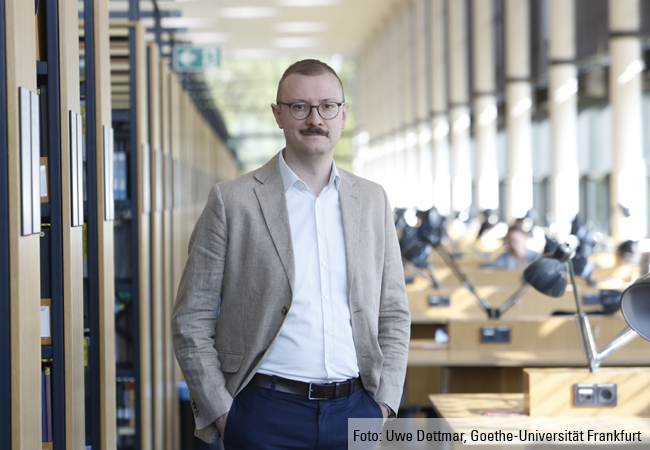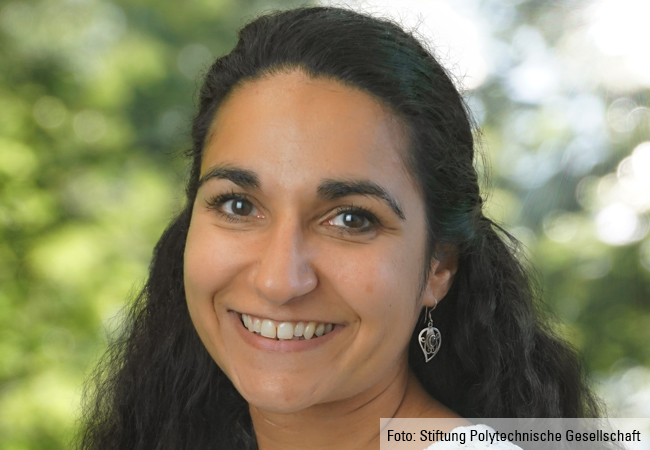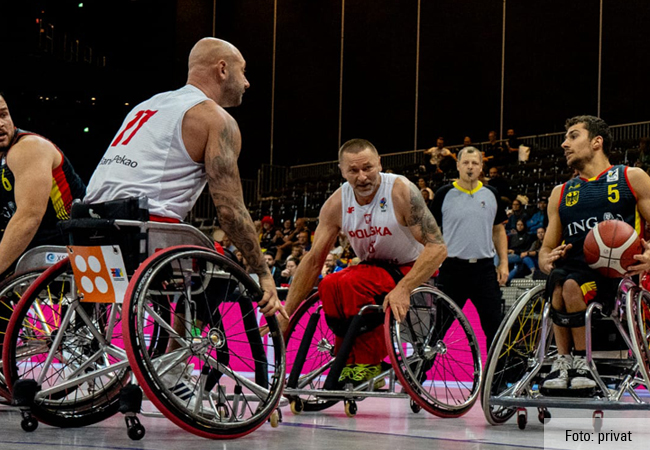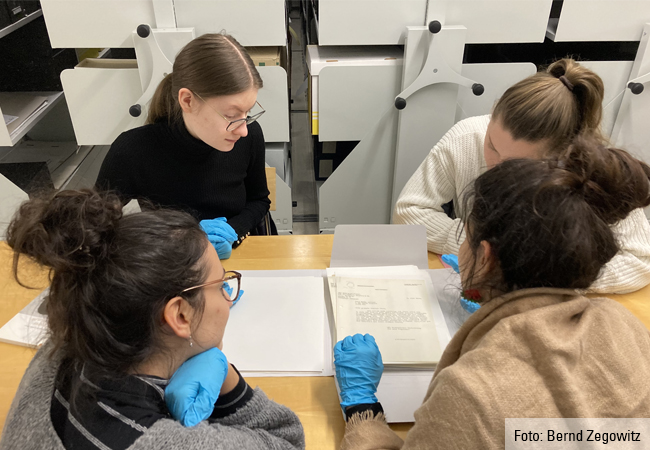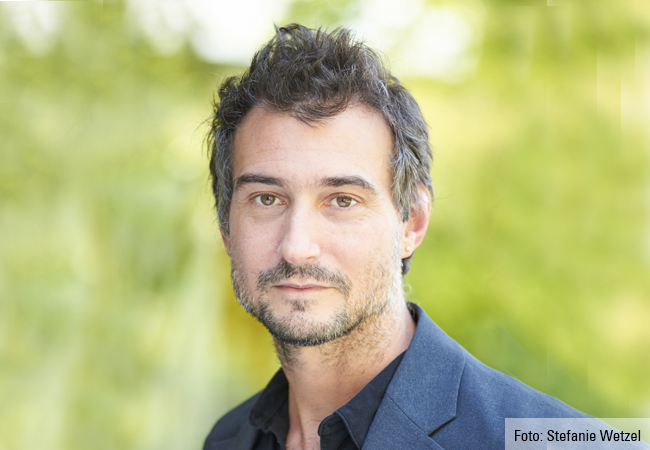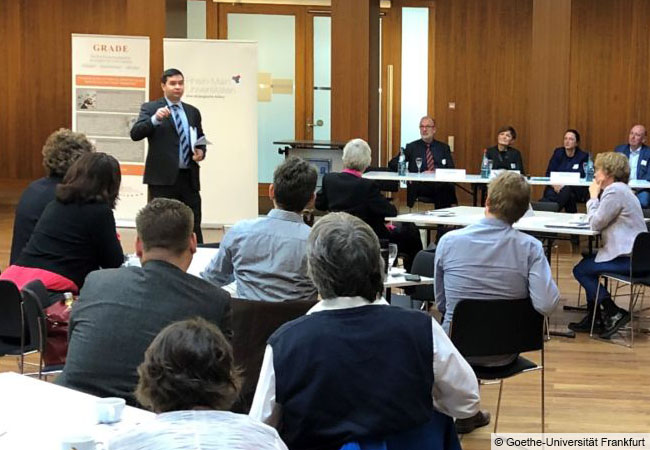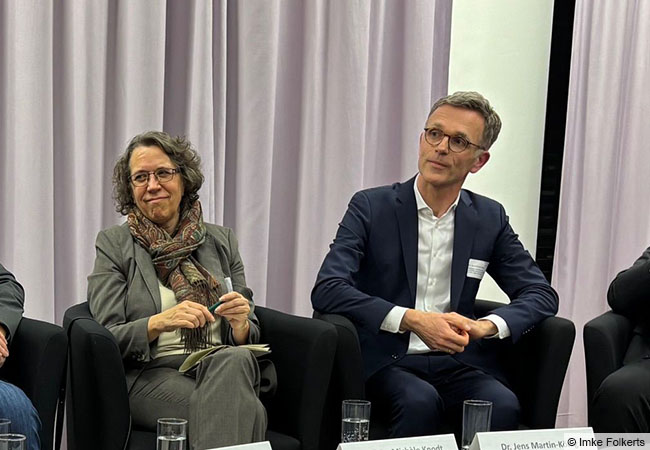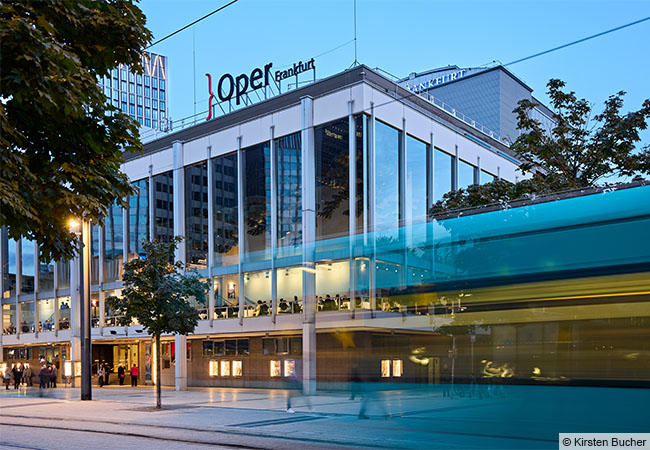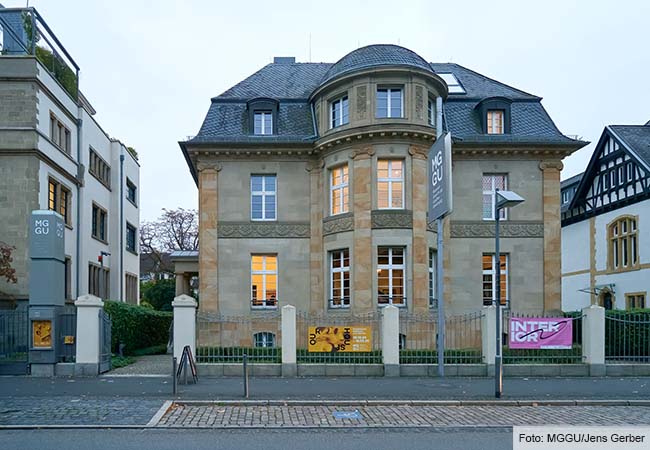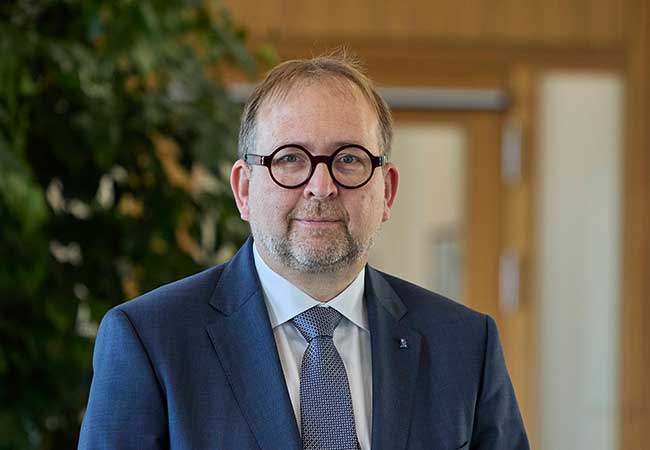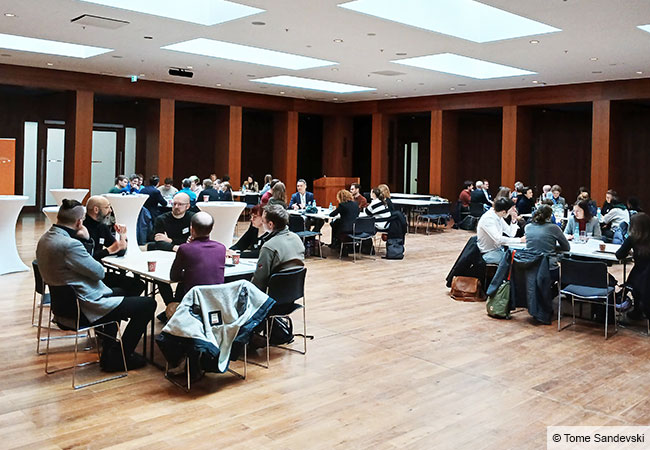
When bioinformatician Franziska Matthäus says she and her partners – biologists in Edinburgh and mathematicians in Turin and Darmstadt – describe pattern formation processes in the skin of mouse embryos, it sounds like something from an ivory tower. However, when she adds that they are investigating the even distribution of hair follicles (from which hairs will later grow), because “otherwise the mouse the embryo grows into would be bald on some parts of its body and have dense tufts of hair on others,” – her talent for comprehensible, down-to-earth explanations becomes clear.
Matthäus, a member of Goethe University Frankfurt’s Faculty of Computer Science and Mathematics, is conducting research with undergraduate and doctoral students at the Frankfurt Institute of Advanced Studies (FIAS), meaning she and her team only carry out theoretical work. They model and simulate spatio-temporal processes in multicellular structures. “Of course we’re always in constant close contact with experimental partners,” Matthäus emphasizes, pointing first of all to the Physical Biology Group at Goethe University, which uses powerful fluorescence microscopes to create three-dimensional images of beetle larvae at various stages of their development, for example. These images form the basis of the data Matthäus and her group use to develop computer models – which in turn are deployed, in cooperation with the experimental partners, in researching an insect’s development.
When she graduated from Berlin’s Humboldt-Universität with a degree in biophysics, Matthäus already knew she was headed for a career in theoretical natural science. “I was always fascinated by the fact that you can use computers and mathematics to understand processes,” she says. “During my student days, I noticed that I definitely prefer sitting at a computer, analyzing data and thinking about processes, rather than perform complicated measurements with large pieces of laboratory apparatus, working with a pipette, and collecting the data myself.”
Successful internship
Of course theoreticians also need at least some idea of how experimental researchers obtain their measurements and data, she continues, and tells the story of how, in her first job as a group leader in Heidelberg, she and her entire working group completed a regular laboratory internship for students at the German Cancer Research Center. “We were familiar with algebra and computer science, but of course we had no experience at all in the lab, and therefore took much longer to do our experiments than the students who had already done an internship.” She adds, with a hint of pride: “But our measuring results were really good – probably because we took a very meticulous approach to the experiments, not having had any previous laboratory experience.”
As part of her computer-aided research, Matthäus not only cooperates with individual partners, but is also involved in one of Goethe University Frankfurt’s larger research initiatives: the SCALE cluster, which celebrated an important successful step in the excellence competition run by the German Research Foundation (DFG) in February 2024. The project focuses on the “digital twin” of a biological cell.
In contrast to AI models, digital twins are based as far as possible on physical descriptions of all processes. This not only enables them to predict the behavior of a system, but also show which mechanisms play a role and how they do so. Modelling approaches like this are the core expertise of Matthäus’ working group, although to date it has been restricted to the level of tissue. “But we’re currently working intensively on concentrating more on structures in the cell’s interior as well, and creating digital twins of individual cells with the SCALE team,” Matthäus stresses.
Intensive work for C3S
Matthäus also sees the work with models, data and AI as one of the future tasks for the Center for Critical Computational Studies (C3S). This multi-faculty institution at Goethe University Frankfurt was founded in April 2023 to develop, apply and critically question digital procedures in equal measure – no matter whether the researchers are looking at scientific technical phenomena, social impacts or cultural products. As the center’s founding director teaching, Matthäus is intensively involved in working with C3S’ entire founding board and the university’s faculties, centers and initiatives, to determine how C3S can be integrated into Goethe University’s teaching structures.
Matthäus is predestined for this task because she herself is passionate about passing on her knowledge to students. She says she loves accompanying young people for a while on their learning path, and recalls with enthusiasm: “During my time in Heidelberg the greatest thing was when I came across students I recognized from my basic lectures who later became members of working groups with which we were doing interdisciplinary work. Today I also meet some former students from my lectures who have become professors themselves.
Stefanie Hense


